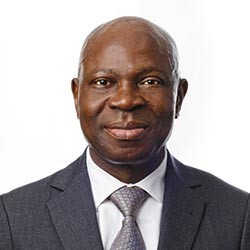The State of Food Security and Nutrition in the World Report, (SOFI) Opening Statement by Gilbert F. Houngbo IFAD President
IFAD Asset Request Portlet
Agrégateur de contenus
The State of Food Security and Nutrition in the World Report, (SOFI) Opening Statement by Gilbert F. Houngbo IFAD President
06 juillet 2022Check on delivery
At a time when climate change, wars and pandemics have put global food systems under pressure like never before, this year’s SOFI report highlights the magnitude and severity of global hunger.
Indeed, we should be sounding the alarm for the world to come together and to take action, now.
But as we respond to yet another crisis, we must also learn from the past and look to the future. We must urgently scale up investment in long-term sustainable development today, so that when the next crisis hits, we are prepared, and those who are most vulnerable are more resilient and able to withstand the shock.
War. Locusts. Pandemic. Drought. Crises have many causes. But they all, invariably, hurt the poor and the most marginalized.
Still today, hunger is concentrated in the rural areas of developing countries.
This is why the pay-off from investing in rural resilience is huge.
In Sierra Leone, for example, more than 1.4 million people are benefitting from a programme that delivers financial services -- including access to credit -- to small-scale farmers and other rural people. Farmers have been able to invest in cash crops such as cocoa and cashew, and young people have been able to start their own businesses.
Throughout the Ebola crisis and now the COVID crisis, the rural finance programme stayed the course, ensuring that poor rural people could continue their activities and build vibrant rural communities, despite external shocks. This is what resilience looks like.
In Tonga, livelihoods were wiped out when a volcano and a tsunami destroyed crops and contaminated drinking water.
A project cofinanced by IFAD and the Australian government established nurseries. These are managed by women’s groups. The gardens provide much-needed fresh produce for the community. As a result, family nutrition has improved, and at the same time women’s businesses are back on their feet.
The new SOFI report highlights ways to repurpose agricultural and food policies to support small-scale producers, and build their resilience.
It notes that policies and subsidies often fall short of reducing hunger, or improving food security and nutrition. Instead, they have promoted an over-reliance on starch, sugary, high-protein, and processed foods, while not supporting the production of healthier fruits and vegetables.
As we start down the road of addressing the current food crisis, let us also act to prevent the next emergency by investing in mid-and long-term development.
Global attention is focused on food security like never before. We must capitalize on this and turn words into action on behalf of the world’s poorest and most vulnerable people.
The state of food security in the world is precarious. We must invest now in building the resilience of the most vulnerable and transforming food systems to meet the needs of a growing population on a warming planet.
